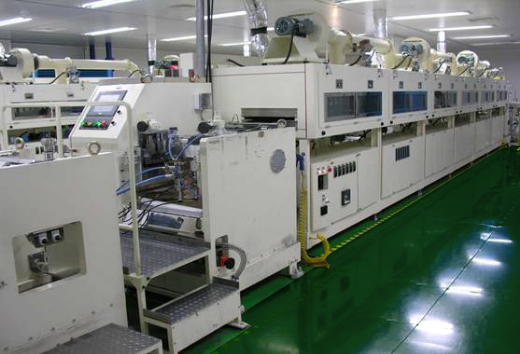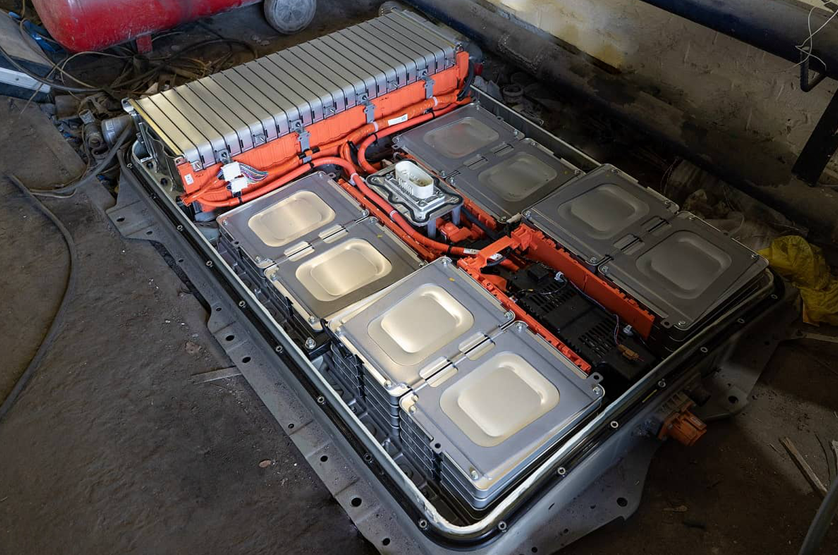Lithium Starter Battery: The Future of Automotive Power?
As the world shifts towards more sustainable energy sources, the automotive industry is also looking for ways to reduce its environmental impact. One promising solution is the lithium starter battery. Compared to traditional lead-acid batteries, lithium starter batteries offer numerous benefits, including longer lifespan, faster charging, and better performance in extreme temperatures.
The lifespan of a lithium starter battery is significantly longer than that of a lead-acid battery. While a lead-acid battery typically lasts for about three to five years, a lithium starter battery can last up to ten years or more. This means that car owners will need to replace their batteries less frequently, reducing waste and the environmental impact of battery production.
In addition, lithium starter batteries can be charged much faster than lead-acid batteries. This is because they have a higher energy density, which means they can store more energy in a smaller space. As a result, they can be charged more quickly, making them more convenient for drivers who need to get back on the road quickly.
Another advantage of lithium starter batteries is that they perform better in extreme temperatures. Lead-acid batteries tend to lose power in cold temperatures, making it difficult to start a car in the winter. Lithium starter batteries, on the other hand, can operate in temperatures as low as -40 degrees Celsius, making them a more reliable option in cold climates.
Despite these benefits, there are still some concerns about the safety and cost of lithium starter batteries. Lithium batteries are known to be more expensive than lead-acid batteries, although their longer lifespan can offset this cost over time. Additionally, lithium batteries are more sensitive to temperature and can be dangerous if they overheat or are damaged.
To address these concerns, manufacturers are working to develop safer and more affordable lithium starter batteries. For example, some companies are using new materials in their batteries that are less likely to overheat or catch fire. Others are experimenting with new manufacturing processes that could reduce the cost of producing lithium batteries.
Overall, the potential benefits of lithium starter batteries make them a promising option for the automotive industry. As battery technology continues to improve, it is likely that we will see more and more cars using lithium batteries as their primary power source. This could help to reduce our dependence on fossil fuels and create a more sustainable future for transportation.

-
 LiFePO4 rechargeable batteries have been growing in popularity for a variety of applications, particularly in electronic devices and transportation. Understanding the lifespan and performance of LiFePO4 batteries is crucial for making an informed decision on whether they are the right choice for your needs. LiFePO4 batteries have a longer lifespan compared to other rechargeable batteries, such as lithium-ion batteries,...Read more
LiFePO4 rechargeable batteries have been growing in popularity for a variety of applications, particularly in electronic devices and transportation. Understanding the lifespan and performance of LiFePO4 batteries is crucial for making an informed decision on whether they are the right choice for your needs. LiFePO4 batteries have a longer lifespan compared to other rechargeable batteries, such as lithium-ion batteries,...Read more -
 Introduction: The demand for high-performance batteries has been on the rise in recent years, driven by the increasing adoption of electric vehicles, energy storage systems, and other portable devices. The lithium iron phosphate (LiFePO4) battery chemistry has gained significant attention due to its superior safety, long cycle life, and high energy density. To ensure optimum performance and extended battery life,...Read more
Introduction: The demand for high-performance batteries has been on the rise in recent years, driven by the increasing adoption of electric vehicles, energy storage systems, and other portable devices. The lithium iron phosphate (LiFePO4) battery chemistry has gained significant attention due to its superior safety, long cycle life, and high energy density. To ensure optimum performance and extended battery life,...Read more -
 In the world of batteries, there are many different types and technologies available. One of the most popular and promising technologies is the lithium iron phosphate (LiFePO4) battery. This type of battery has become increasingly popular in recent years, due to its high capacity, long lifespan, and excellent safety profile. In this article, we will take a closer look at...Read more
In the world of batteries, there are many different types and technologies available. One of the most popular and promising technologies is the lithium iron phosphate (LiFePO4) battery. This type of battery has become increasingly popular in recent years, due to its high capacity, long lifespan, and excellent safety profile. In this article, we will take a closer look at...Read more -
 Introduction: Medical equipment plays a crucial role in healthcare settings, helping healthcare professionals provide accurate diagnoses, perform life-saving procedures, and monitor patient conditions. To ensure the seamless functioning of these devices, reliable and long-lasting power sources are essential. Lithium batteries have emerged as a game-changer in the medical industry, offering significant advancements in technology that enhance both performance and safety....Read more
Introduction: Medical equipment plays a crucial role in healthcare settings, helping healthcare professionals provide accurate diagnoses, perform life-saving procedures, and monitor patient conditions. To ensure the seamless functioning of these devices, reliable and long-lasting power sources are essential. Lithium batteries have emerged as a game-changer in the medical industry, offering significant advancements in technology that enhance both performance and safety....Read more -
 Introduction: A portable car jump starter battery charger booster starter is an essential tool that every car owner should have in their vehicles. It is a compact and lightweight device that can jump-start your car battery in case of a breakdown or emergency. It can also be used to charge your phone, tablet or laptop, making it a versatile...Read more
Introduction: A portable car jump starter battery charger booster starter is an essential tool that every car owner should have in their vehicles. It is a compact and lightweight device that can jump-start your car battery in case of a breakdown or emergency. It can also be used to charge your phone, tablet or laptop, making it a versatile...Read more -
 Are you tired of experiencing a dead battery in your car? Having a reliable starter battery pack can solve this problem for you. A starter battery pack is a portable power bank that can store power and jump-start your car when its battery is dead. It is a time-saving and cost-effective solution for those who frequently experience battery failures. In...Read more
Are you tired of experiencing a dead battery in your car? Having a reliable starter battery pack can solve this problem for you. A starter battery pack is a portable power bank that can store power and jump-start your car when its battery is dead. It is a time-saving and cost-effective solution for those who frequently experience battery failures. In...Read more -
 Introduction In recent years, there has been a growing demand for high-performance batteries that can provide reliable and efficient power for various applications. One such battery technology that has gained significant attention is the Lithium Iron Phosphate (LiFePO4) battery. These batteries offer numerous advantages, including high energy density, longer lifespan, and enhanced safety. To ensure optimal performance and longevity of...Read more
Introduction In recent years, there has been a growing demand for high-performance batteries that can provide reliable and efficient power for various applications. One such battery technology that has gained significant attention is the Lithium Iron Phosphate (LiFePO4) battery. These batteries offer numerous advantages, including high energy density, longer lifespan, and enhanced safety. To ensure optimal performance and longevity of...Read more

